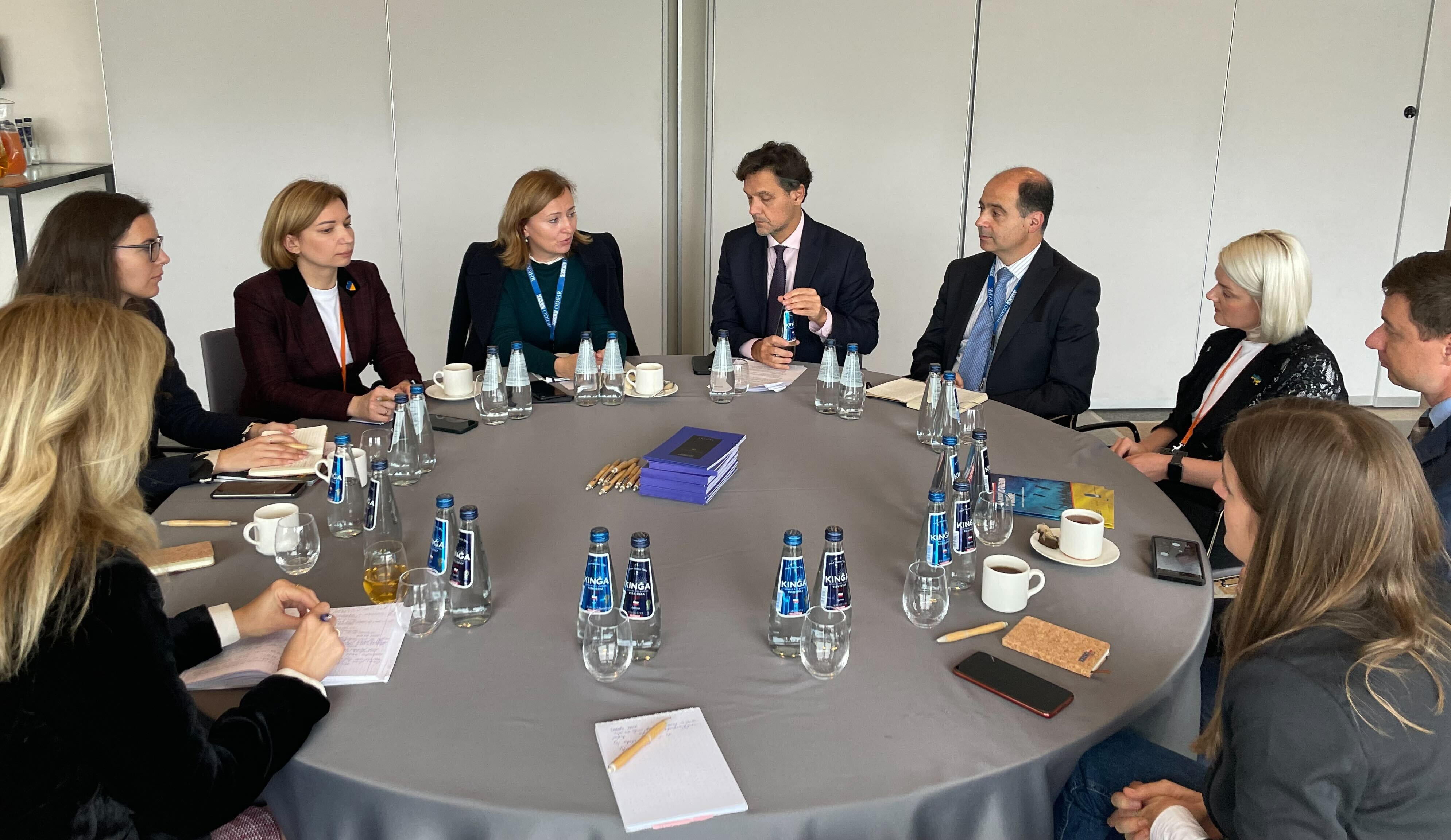Yesterday, on September 29, within Human Dimensions Conference, which is taking place in Warsaw, the informal meeting of Ukrainian civil society representatives with Matteo Mecacci, Director of the OSCE Office for Democratic Institutions and Human Rights was held.
“We are trying to continue our work with Ukrainian institutions of different levels and hope to expand it,” Matteo Mecacci said at the beginning of the meeting. OSCE ODIHR Director told that the Bureau is watching the pseudo-referendum that are being organized by russia in the occupied territories of Ukraine very closely. Unlike 2014, when similar events were taking place in Crimea, ODIHR is following the situations in advance in order to avoid misinterpretations.
Matteo Mecacci also asked the representatives of Ukrainian civil society questions about their agenda and their needs for dialogue and support.
Head of the Board of Civil Network OPORA Olga Aivazovska mentioned that despite ongoing war and martial law in Ukraine, the country is going to become the EU member in the future perspective. She told that OPORA launched the Center for Preliminary Documentation of War Crimes in Warsaw.
“We decided that we have to work with refugees because they are eyewitnesses, and their evidence and testimonies have to be a part of the big future case. However, what we see already is that there is a huge problem with the awareness of people. That’s why I believe that ODIHR can in the future think of a bigger awareness campaign focusing on Ukraine and our citizens abroad. Many people are scared to share this information because their relatives or families can stay in the occupied territories. Therefore, it’s very important to aware people on what type of security for them we want to produce and how we will protect them.”
Olga Aivazovska emphasized that OPORA is focused on the productive result, and not just on the process for itself.
“We visited the ICC in Hague and try to be aware of what our stakeholders are thinking about. It’s a topic for deeper analysis, negotiation, and conversation, so I propose you and ODIHR to form the platform for discussions. Civil society and OPORA can collect a lot of evidence, but it doesn’t matter if there is no communication and cooperation between prosecutors in Ukraine and abroad, if there is no clarity on how ICC will use claims from civilians. And so I hope that this platform can ensure efficiency in the relationship between civil society, citizens who have the political will to testify about war crimes, and international organizations.” she said.
Moreover, Olga Aivazovska highlighted the importance of using the correct terms regarding the war and pseudo-referendum,
“We still have a conversation on the vocabulary of this war as “Ukrainian crisis’, as “Putin’s regime”, “Putin’s crimes”, or as “referendums” without any “pseudo-” or “fake”. For example, even international independent media use vocabulary as if it was a real process: “referendum’, “voting”, “turnout”, “result”, “observation” and so on. It’s important to speak on why fake referendum doesn’t have any connection with real processes.”
Also, the Head of the Board of OPORA expressed the hope that the ODIHR will be able to become a communication platform for establishing a dialogue between the authorities and the opposition in Ukraine in order to avoid groundless criticism and condemnation of even those initiatives that were proposed by civil society. Olga Aivazovska noted that the recommendations of the OSCE ODIHR in general can be used by the EU to form a response in negotiations with Ukraine on membership.
Read also:
